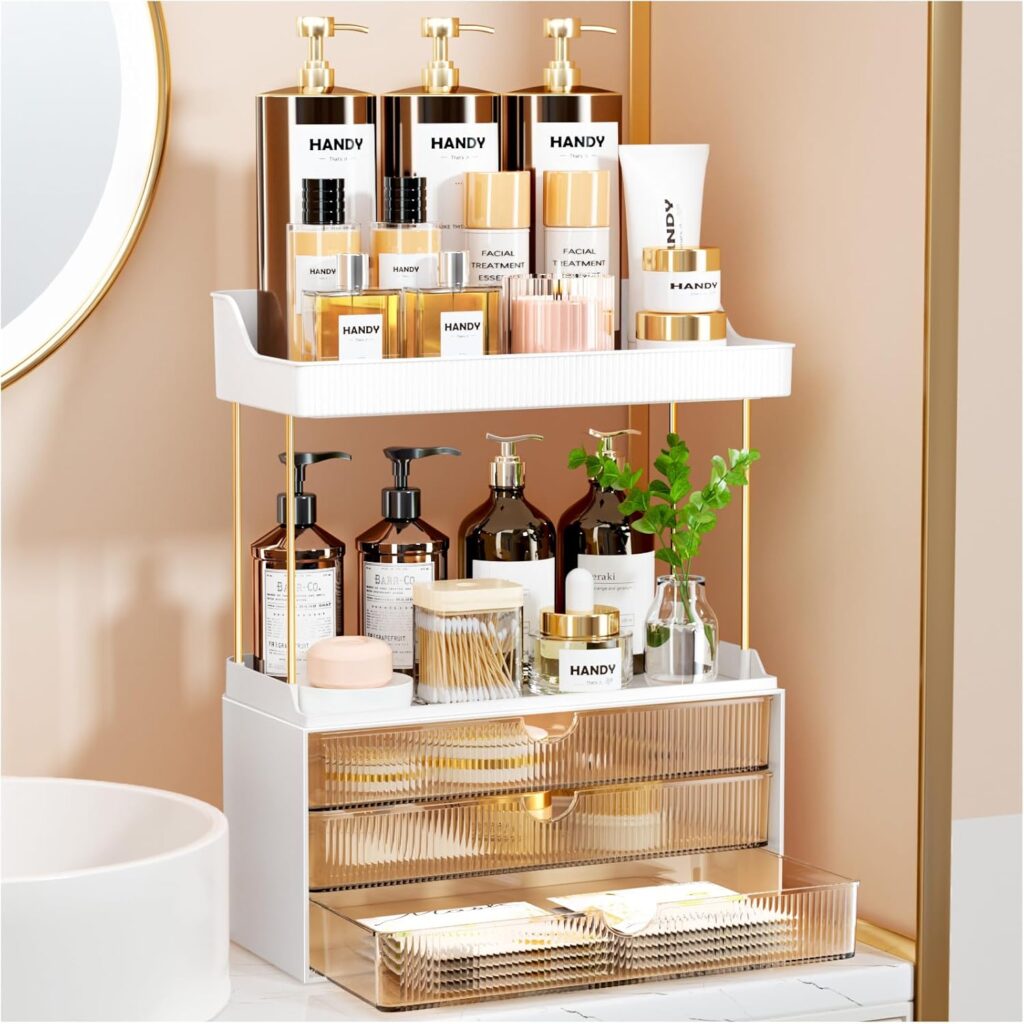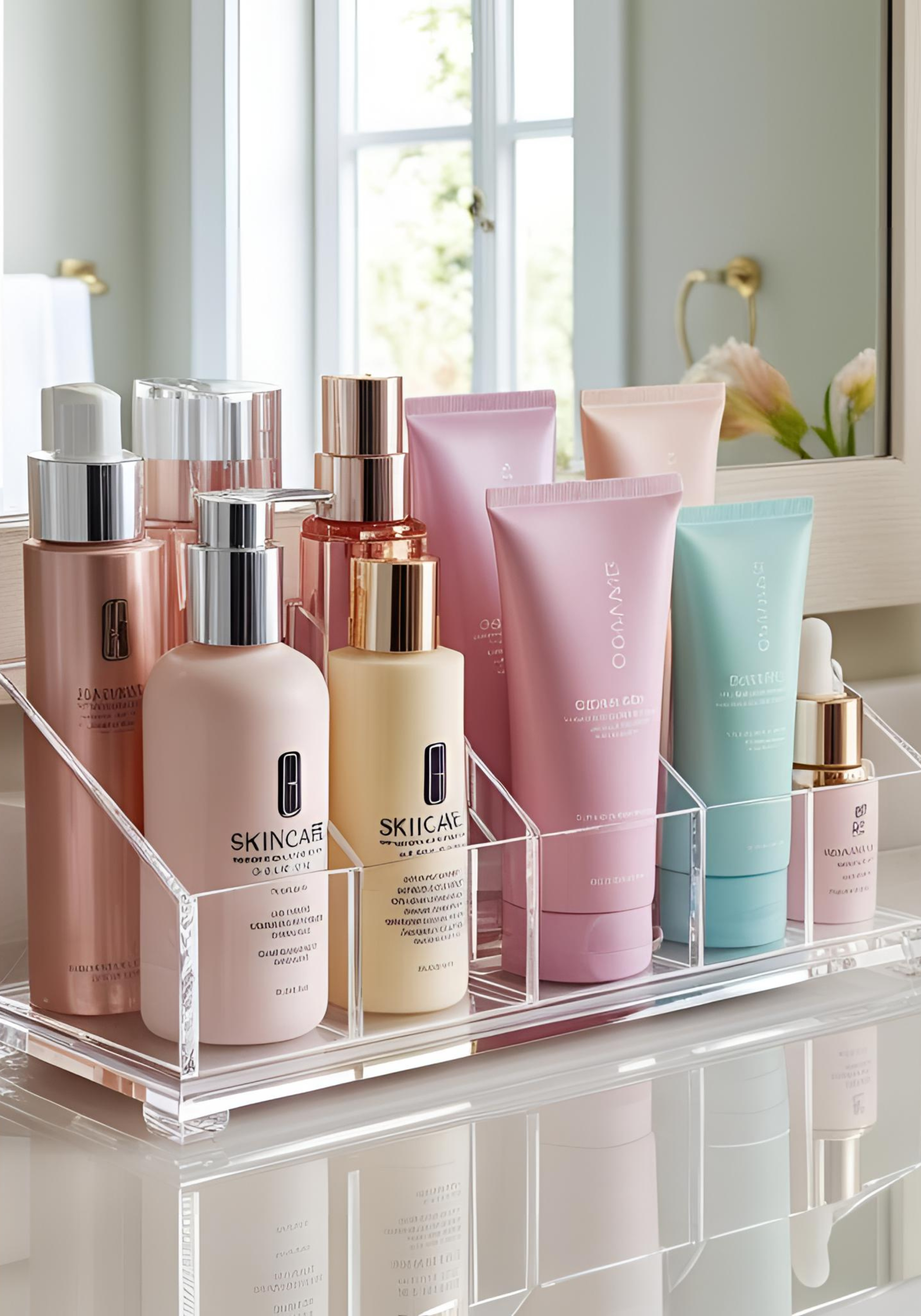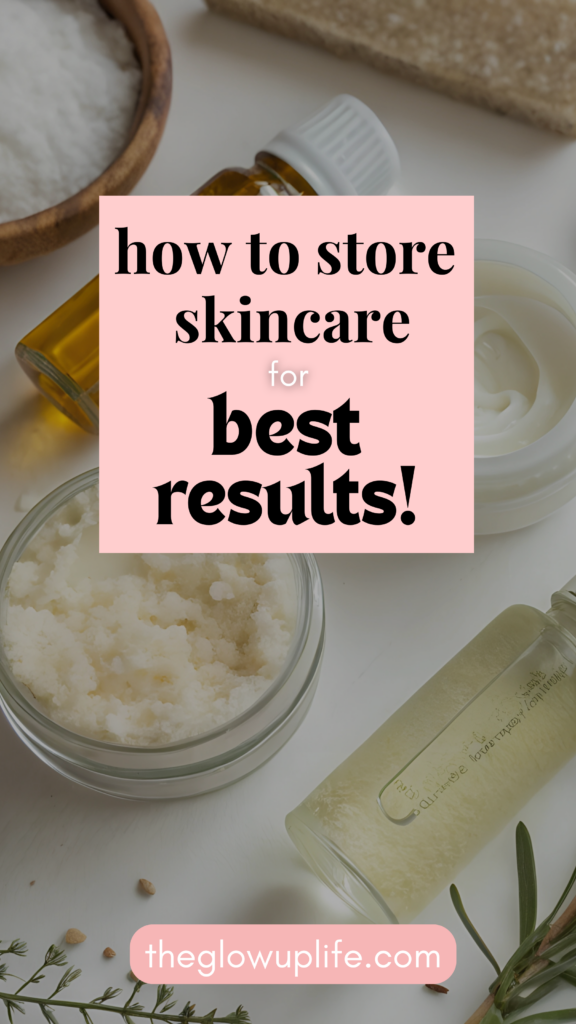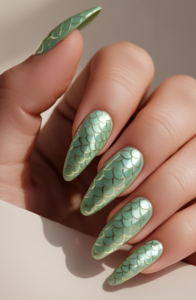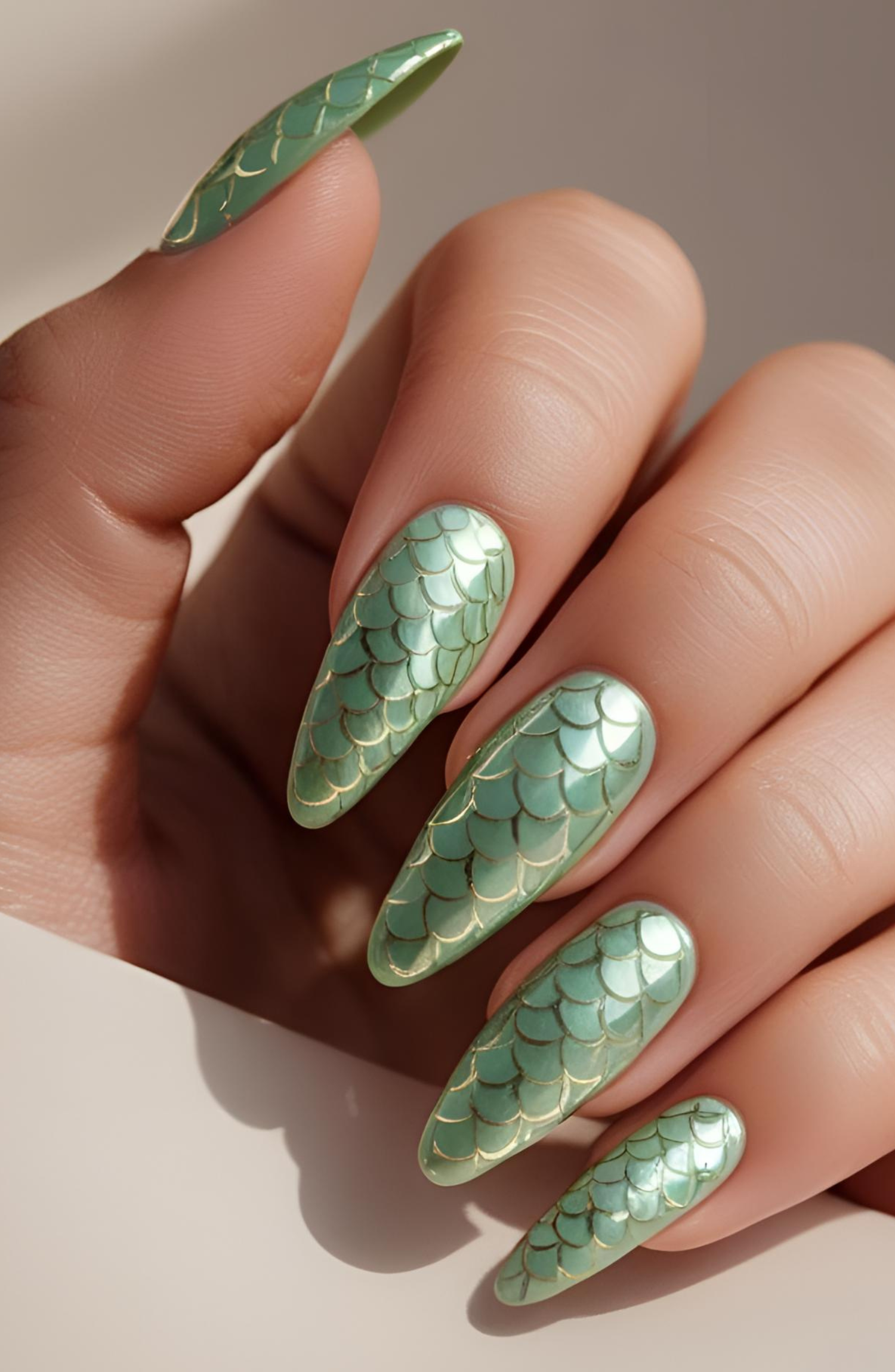Let’s face it, we invest time (and money!) into our skincare routines, so it’s important to store that skincare properly.
We slather on serums, massage in moisturizers, and meticulously apply sunscreen, all in the quest for that coveted glow.
But are we giving our skincare saviors the care they deserve? Are we storing them properly? When does skincare expire?
If your bathroom shelf looks like a skincare graveyard, fear not! This article will help you keep your products fresh and effective.
*this post includes affiliate links*
How Skincare Is Preserved
Before getting into fun skincare storage solutions, let’s talk about the real heroes of your beauty cabinet: preservatives. Yes, those often misunderstood ingredients are actually crucial for keeping your skincare safe and stable.
Think about it: skincare products contain water, oils, and other yummy ingredients that bacteria and fungi love to munch on. Preservatives, like parabens (which are safe to use, don’t panic!), phenoxyethanol, and others, act as a barrier, preventing microbial growth and extending the shelf life of your products. Without them, your favorite serum could turn into a petri dish in record time.
It’s important to remember that even with preservatives, skincare products have a limited lifespan. Check the “PAO” symbol (a little open jar with a number and an “M” for months) on your product packaging. This tells you how long the product is good for after opening.
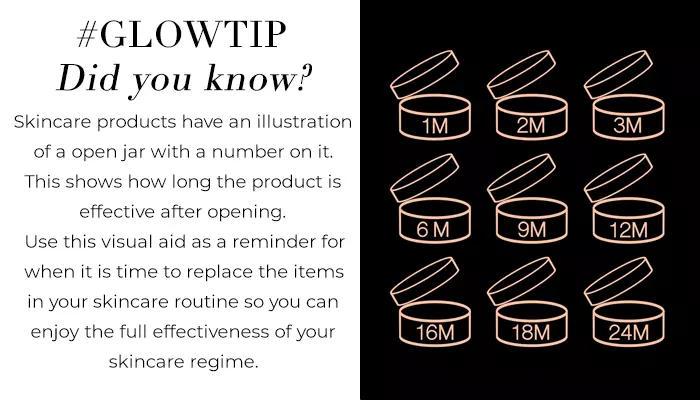
Skincare Storage 101: Keep it Cool, Dark, and Dry
Now, onto the nitty-gritty of storage. The golden rule? Keep your skincare away from heat, light, and humidity – all factors that can help your skincare products degrade more quickly.
- Heat: Hot environments can break down active ingredients, making them less effective. Avoid storing products in steamy bathrooms or near radiators.
- Light: Sunlight, especially UV rays, can degrade certain ingredients, like antioxidants and retinoids. Keep products in dark or opaque containers, and store them in drawers or cabinets. Look for products that already come in an opaque container.
- Humidity: Damp environments, like bathrooms, can promote bacterial growth. If your bathroom is consistently humid, consider storing your products elsewhere.
The Fridge Factor: Do You Need A Skincare Fridge??
Enter the skincare fridge, the latest must-have for beauty enthusiasts. I’ve seen so many influencers promoting mini skincare fridges to store skincare properly. Honestly, while these fridges look really cute, they’re not a skincare storage requirement by any means. Below is the low-down in skincare fridges:
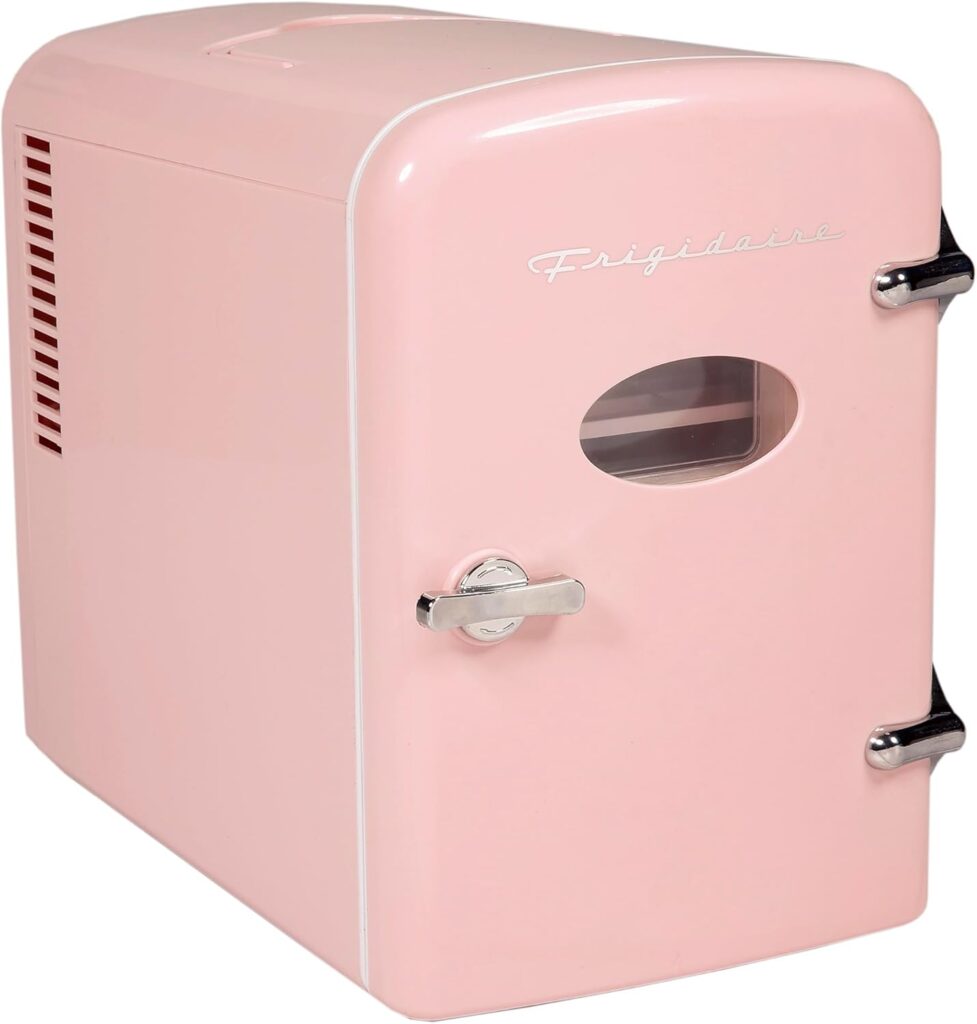
Benefits:
-
- Cooling Sensation: Refrigerated products can feel incredibly soothing, especially on irritated or inflamed skin.
- Extending Shelf Life: Cold temperatures can slow down the degradation of certain ingredients, particularly those that are unstable or prone to oxidation, like vitamin C and some serums.
- Puffiness Reduction: Cold products can help constrict blood vessels, reducing puffiness around the eyes.
- Fun Factor: Let’s be honest, a mini skincare fridge adds a touch of luxury to your routine!
What to Refrigerate for a cooling/depuffing benefit:
-
-
- Sheet masks
- Eye creams and gels
- Vitamin C serums
- Aloe vera gel
- Natural or organic products (which may have fewer preservatives)
-
What NOT to Refrigerate:
-
- Oil-based products (they can thicken or separate)
- Clay masks (they can harden)
- Products with thick or waxy consistencies (they can become difficult to apply)
Tips for Skincare Fridge Success:
- Keep your fridge clean to prevent bacterial contamination.
- Store products in airtight containers or bags.
- Don’t freeze your skincare!
- And remember that not all products need to be refrigerated to remain preserved – they are already designed to remain preserved when stored in proper conditions within the expiry period.
RELATED READING: How To Get An Overnight Skincare Glow Up!
Beyond the Fridge: Other Skincare Storage Hacks & Ideas
- Organize: Use drawer organizers, acrylic organizers or clear containers to keep your products tidy and easily accessible.
- Keep lids tightly closed: this avoids oxygen exposure, and contamination.
- Wash your hands! Before applying any product, wash your hands to prevent introducing bacteria.
